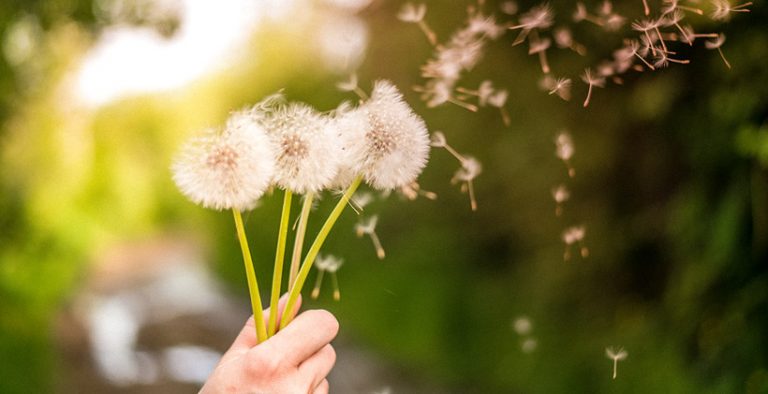Spring is in the air!
We’re finally coming out of a long, unusually cold winter and are getting our first taste of spring. The snow has melted and tree buds are starting to bloom, but the inevitable truth is that the beautiful greenery outside will soon release pollen into the atmosphere. Although warm, sunny seasons have physical and mental benefits, an early spring, or a spring that quickly turns to summer can signify an exceptionally bad allergy season is ahead.
Unfortunately, seasonal allergies don’t spare anyone. Infants, children, middle age adults and seniors are all equally susceptible to allergies. However, for seniors, allergies pose a higher risk than for any other age group. Asthma, COPD, high blood pressure and other chronic diseases may be further complicated by allergies. The challenge is that most of the medications that provide allergy relief contain an antihistamine. This can be a harsh combination with other medications used to treat chronic conditions. It’s for these reasons that seniors have a particularly hard time controlling seasonal allergies.

There are some things that caregivers and family members can do to help seniors be safe and more comfortable this upcoming allergy season. Here are a few tips…
Talk to your doctor before taking over-the-counter medication.
Most allergy treatments contain antihistamines, and when paired with other medications can cause dizziness, drowsiness, high blood pressure and other adverse reactions. This can challenge a senior’s health, increase fall risk and the chance of other injuries.
Keep a watchful eye.
Common allergy symptoms like coughing, runny nose, itchy eyes, sniffling and sneezing. These are traditional signs that allergy season is upon us. For seniors in particular, it’s important to also pinpoint the specific allergy. This is why allergy testing is often recommended. Handling an allergy to a pet is much different than dealing with a pollen allergy.
Check pollen and mold levels before heading outdoors.
There are many free services to check local counts. If levels are high and you intend on being outside, wear a hat and sunglasses to keep allergens out of your face and hair.
Make sure outdoor allergens stay outside.
Remove clothing and shower if you’ve spent time outside, especially in areas with freshly cut lawns or heavy foliage. Keep windows and doors shut to keep pollen and other allergens from coming into the home. Clean bedding and other linens regularly.
The best way to fight allergies is by determining the culprit(s) and learning how to avoid them. If you’re a caregiver or loved one of a senior who is struggling with allergies, keep their doctor in the know. It’s easy to overlook allergies if the person has multiple health issues.
Superior Home Health & Hospice offers a complimentary consultation with an advisor to help you determine your loved one’s home health & hospice needs. To schedule your free consultation with one of our visiting nurses in Solvang or the surrounding areas, call 805.742.4514 or contact us online.

